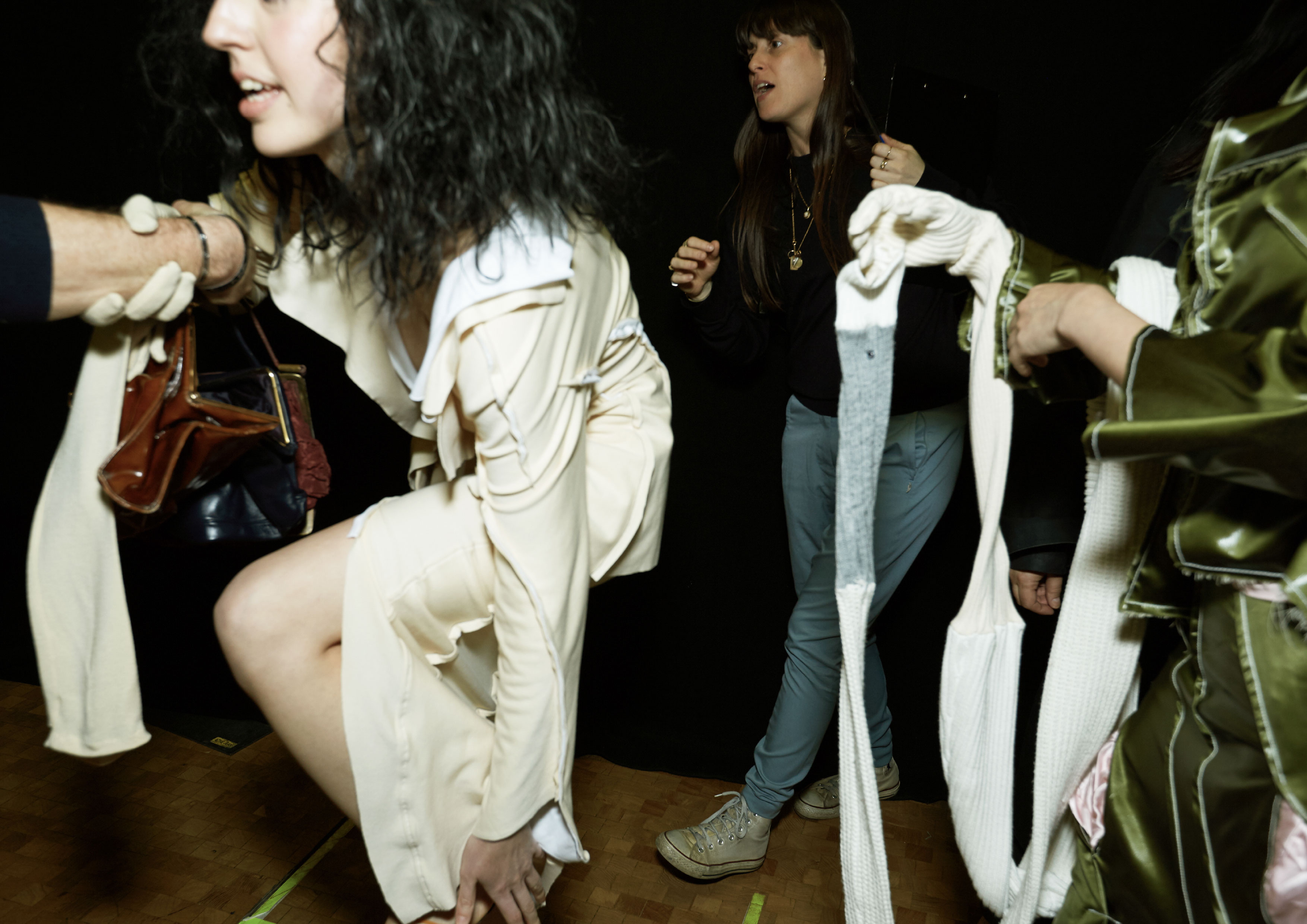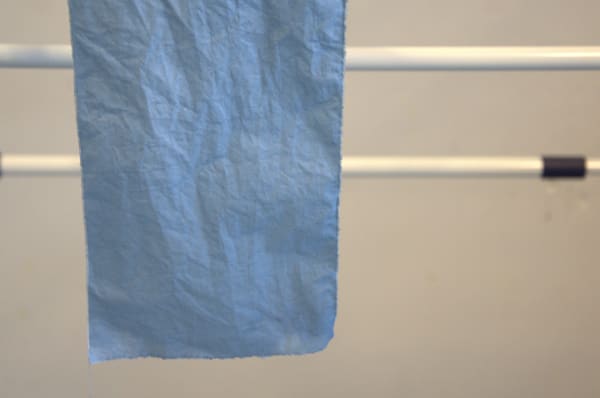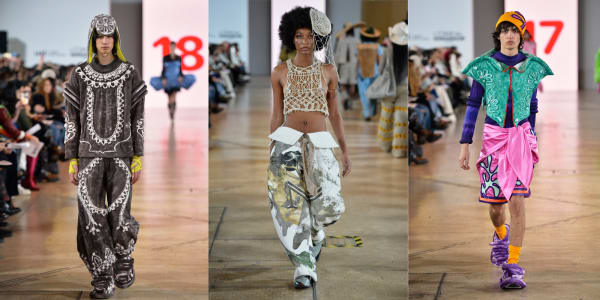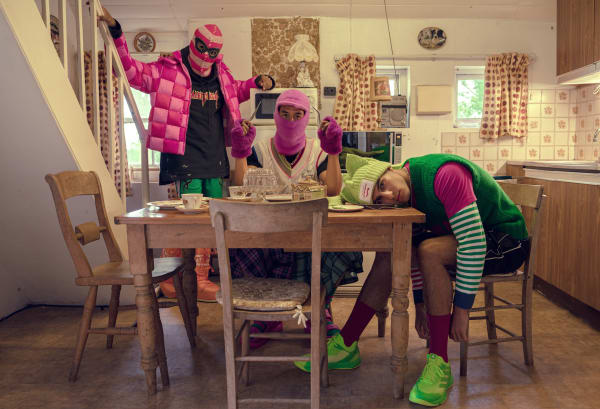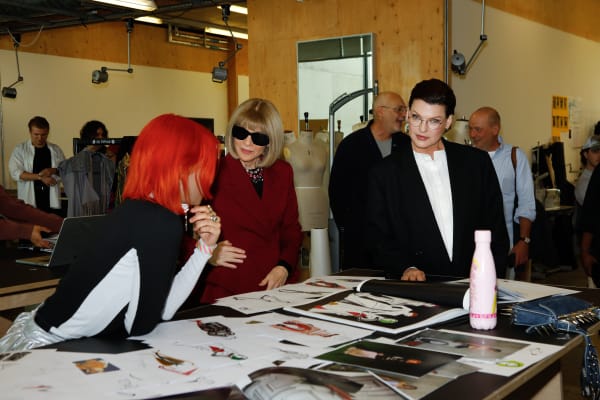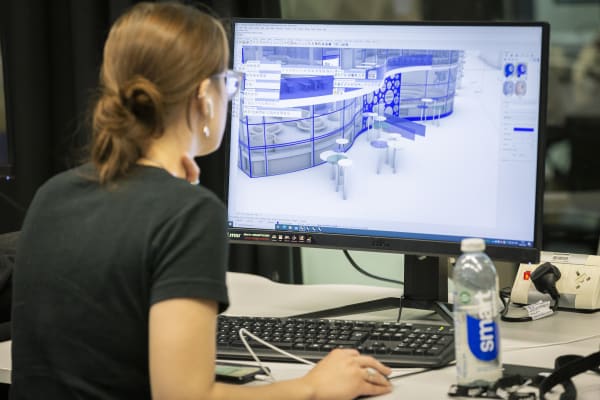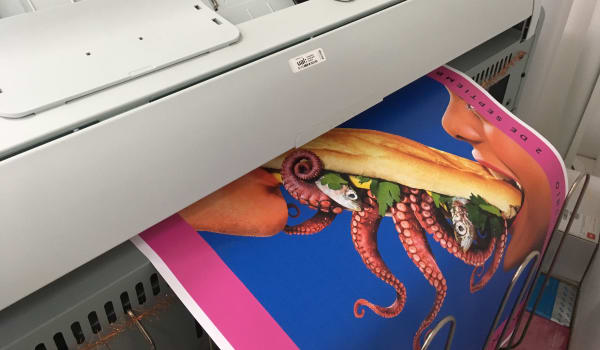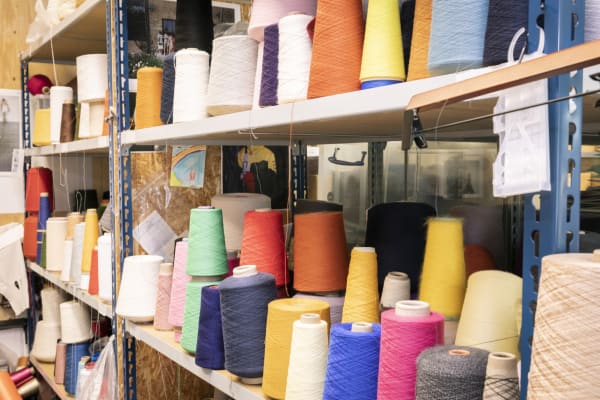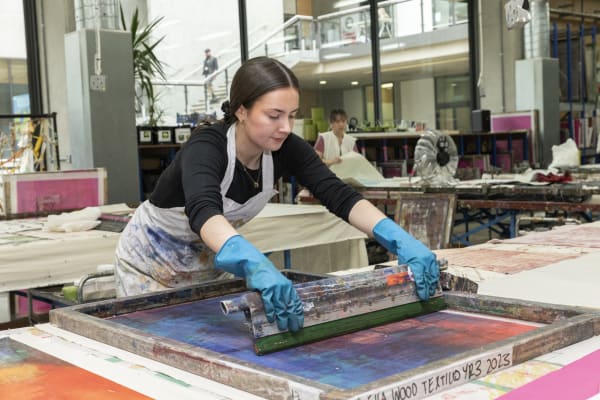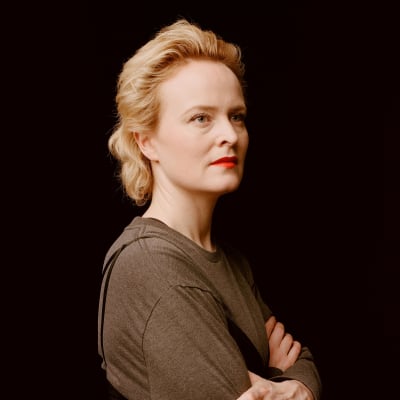Course units
The MA Fashion course provides learning and teaching structured around the specialist subject of fashion.
Throughout four course units, you will be expected to question your approach and commitment to personal work and conduct intensive and in-depth research and enquiry.
Project-based teaching is delivered through a combination of individual tutorials, workshops, seminars, group critiques and peer reviews. These will help you refine self-critical judgement and thinking, from exploration and contextualisation, through experimentation and development to finally communicating your ideas and outcomes.
Emphasis is placed on creativity, identity, and professional development, supporting authentic, sustainable solutions and accountability in design practice. Digital learning will also enable you to experiment with using emerging technologies for application in design development and communication, and wholly digital outcomes will be possible alternatives for project and unit assessments.
Unit 1: Knowledge and Skills
This initial unit consists in learning through dialogue in practice. Projects are designed to make you reflect on your knowledge, skills, and abilities. Discussions question your assumptions with the aim of broadening your perspective on fashion as the core subject of study.
Individual and group tutorials and critiques will allow you to discuss your approach to research, development processes, making and communication of responsible design. Workshops and seminars will facilitate learning and discuss design and identity, accountability, and planetary justice. These sessions encourage discussion of shared ground and differing concerns and help you think through and formulate your ideas.
Unit 2: Collaborative Practices for Common Good
Unit 2 provides opportunities for inter- and cross- disciplinary research and practice co-operation with other postgraduate courses at Central Saint Martins.
You will undertake this collaborative unit during the Spring term. This collaboration is designed to offer a robust framework for developing practice across the College in relation to the University’s social purpose ‘to change society through our knowledge and creativity’.
Unit 3: Independent Projects [Pre-collection; Independent Major Project, Part 1
–Rationale, Research, and Initial Design Development Portfolio]
Unit 3 focuses on a combination of independent and industry-led project briefs.
Individual tutorials and group critiques will allow you to discuss your approach to research, development processes, making and communication.
In this unit, learning involves investigative methods, risk-taking and critical self-assessment. Pre-collection will allow you to investigate ideas and test solutions in practice. Some will inform the writing of your Rationale (research proposal/reasons and aims) for your Independent Major Project, Part 1 – Portfolio, which will include a substantial body of preliminary research and initial design development.
Wholly digital outcomes for projects and unit assessment are possible.
Unit 4: Independent Major Project - Part 2 – Realisation
The rationale, research and design development produced in Unit 3 will form the basis of this final course unit, which will allow you to focus on the making and realisation of your Major Project. Throughout the unit, you will be supported to plan, develop and complete your self-led development work, receive individual supervision and in-progress feedback during timetabled garment fitting sessions to advance your professional and academic skills to a level that prepares you for post-graduation practices.
Two substantial outcomes will be required to achieve your MA. These usually include a comprehensive design portfolio and a garment collection demonstrating your specialist knowledge. Wholly digital outcomes for projects and unit assessment are possible.
Important note concerning academic progression through your course: If you are required to retake a unit you will need to cease further study on the course until you have passed the unit concerned. Once you have successfully passed this unit, you will be able to proceed onto the next unit. Retaking a unit might require you to take time out of study, which could affect other things such as student loans or the visa status for international students.
Mode of study
MA Fashion is offered in full-time mode which runs for 45 weeks over 17 months. You will be expected to commit 40 hours per week to study, which includes teaching time and independent study.
Credit and award requirements
The course is credit-rated at 180 credits.
On successfully completing the course, you will gain a Master of Arts (MA degree).
Under the Framework for Higher Education Qualifications, an MA is Level 7. All units must be passed in order to achieve the MA but the classification of the award is derived from the mark for the final unit only.
If you are unable to continue on the course, a Postgraduate Certificate (PG Cert) will normally be offered following the successful completion of 60 credits, or a Postgraduate Diploma (PG Dip) following the successful completion of 120 credits.
